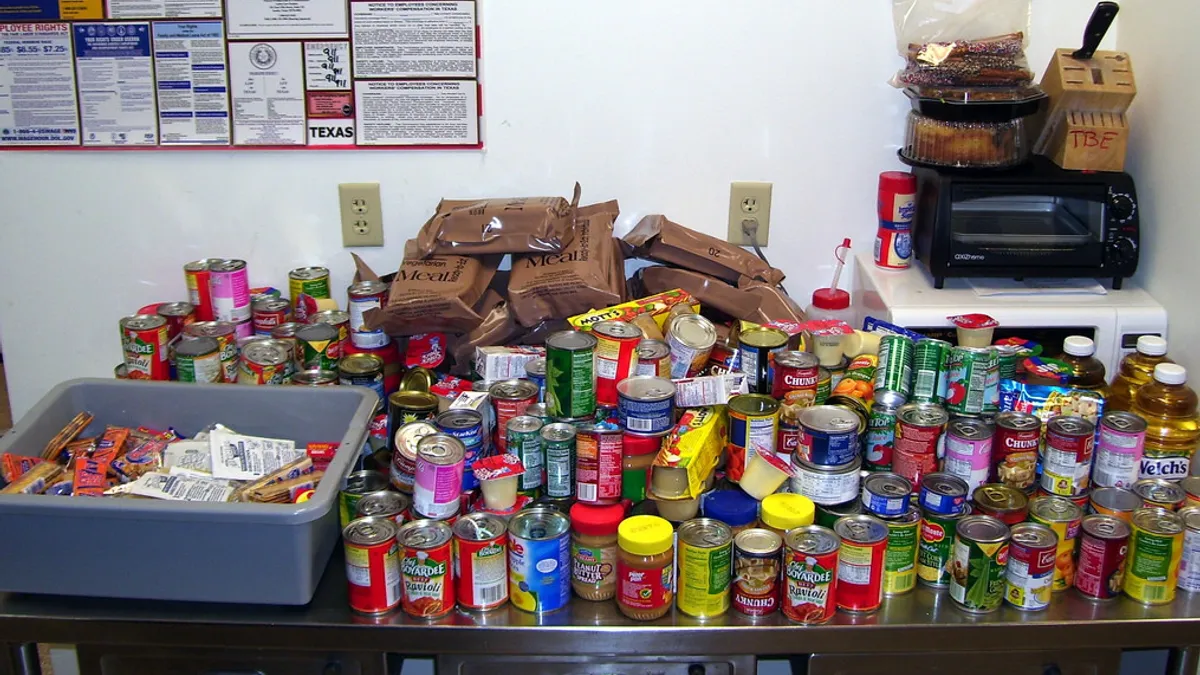Dive Brief:
- A website is helping truckers in Indiana donate food rejected by grocers or distributors, the IndyStar reported Tuesday.
- Drivers faced with a load of completely edible but possibly imperfect food can consult IndyFoodDrop.org to locate nearby food banks or pantries in need. Once arrived, truckers receive help unloading the food, a receipt for a tax deduction, and the satisfaction of helping others in need.
- The effort was made possible by a joint partnership between the Indiana Motor Truck Association, Gleaners Food Bank, the Midwest Food Bank, second Helpings and St. Vincent de Paul Food Pantry. The alliance seeks to initiate similar programs nationwide to avoid food waste.
Dive Insight:
The partnership between truckers and food charities highlights the role of the supply chain in reducing waste, whether in the food, retail or manufacturing industries.
Given the high quality standards held by grocers, and consumers, providing an online portal to direct rejected goods allows what would otherwise be "waste" to become mined value in the form of viable meals and tax exemptions. It's a reverse logistics dream for food transportation providers.
If zero waste is the goal, however, supply chains still have a long way to go to avoid spoilage and ensure food supply reaches the areas of highest need. Cold chain infrastructure, refrigerated transport and greater visibility into shipments are some ways to address the supply-demand gap. Food distributors, like Tesco, may also benefit from greater communication with both vendors and suppliers to prepare for early or excess harvests, or lags in demand.
Lean strategies indicate food spoilage represents two types of waste, overproduction and defects, which lead to rejection by grocers. However, the new initiative shows how increased communication through reverse logistics coordination can help create value and correct at least three other sources of waste: transportation inefficiencies, excess inventory and underutilizing truckers' skills. In this sense, the initiative drives both direct and indirect value to the food supply chain.











